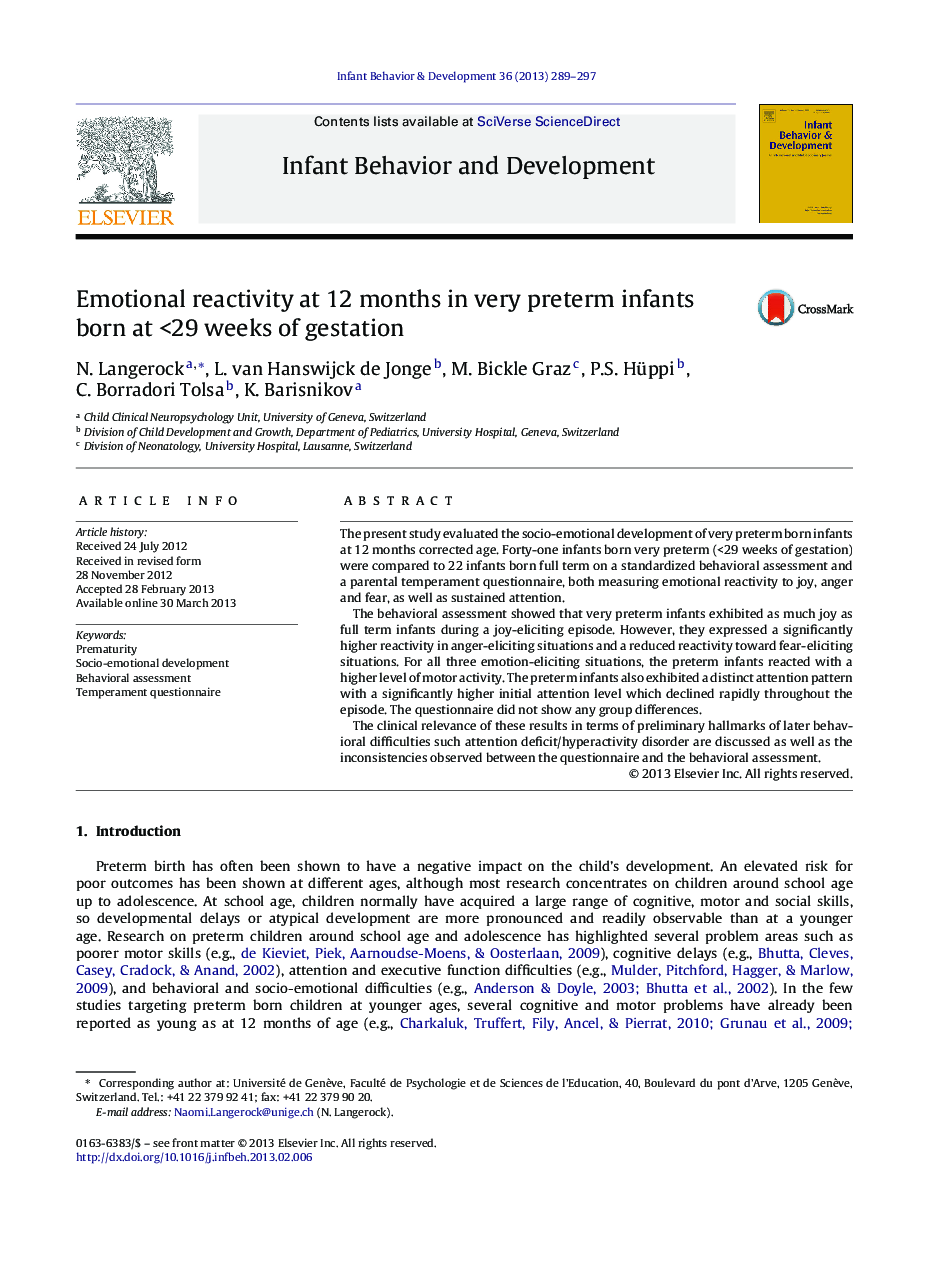| Article ID | Journal | Published Year | Pages | File Type |
|---|---|---|---|---|
| 917237 | Infant Behavior and Development | 2013 | 9 Pages |
•We compare the socio-emotional development of preterm and full term infants.•We use a behavioral assessment and a temperament questionnaire at 12 months of age.•Preterm born infants show as much joy, more anger and less fear.•Preterm born infants show a different attentional pattern.•These behaviors might be preliminary hallmarks to later behavioral difficulties.
The present study evaluated the socio-emotional development of very preterm born infants at 12 months corrected age. Forty-one infants born very preterm (<29 weeks of gestation) were compared to 22 infants born full term on a standardized behavioral assessment and a parental temperament questionnaire, both measuring emotional reactivity to joy, anger and fear, as well as sustained attention.The behavioral assessment showed that very preterm infants exhibited as much joy as full term infants during a joy-eliciting episode. However, they expressed a significantly higher reactivity in anger-eliciting situations and a reduced reactivity toward fear-eliciting situations. For all three emotion-eliciting situations, the preterm infants reacted with a higher level of motor activity. The preterm infants also exhibited a distinct attention pattern with a significantly higher initial attention level which declined rapidly throughout the episode. The questionnaire did not show any group differences.The clinical relevance of these results in terms of preliminary hallmarks of later behavioral difficulties such attention deficit/hyperactivity disorder are discussed as well as the inconsistencies observed between the questionnaire and the behavioral assessment.
